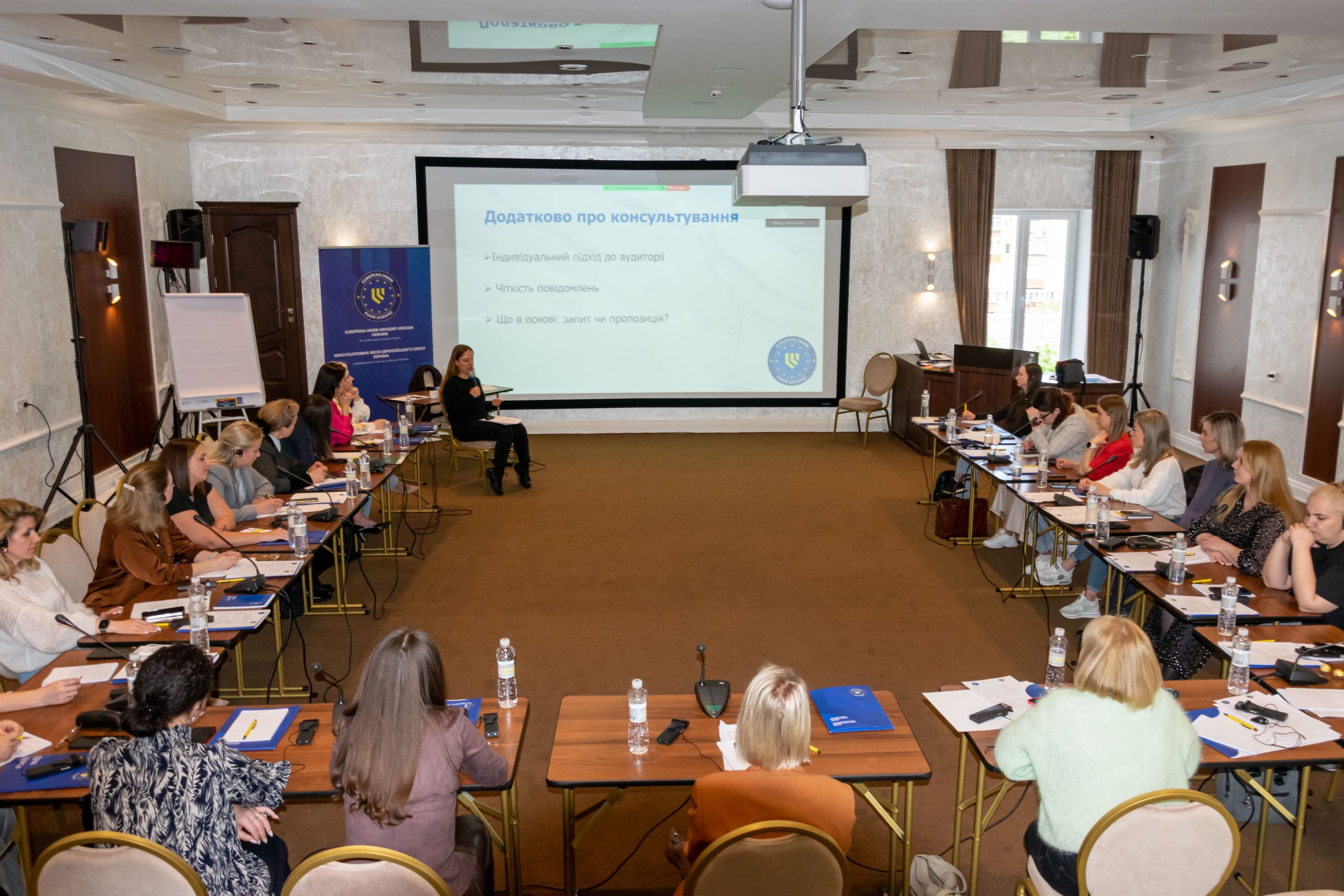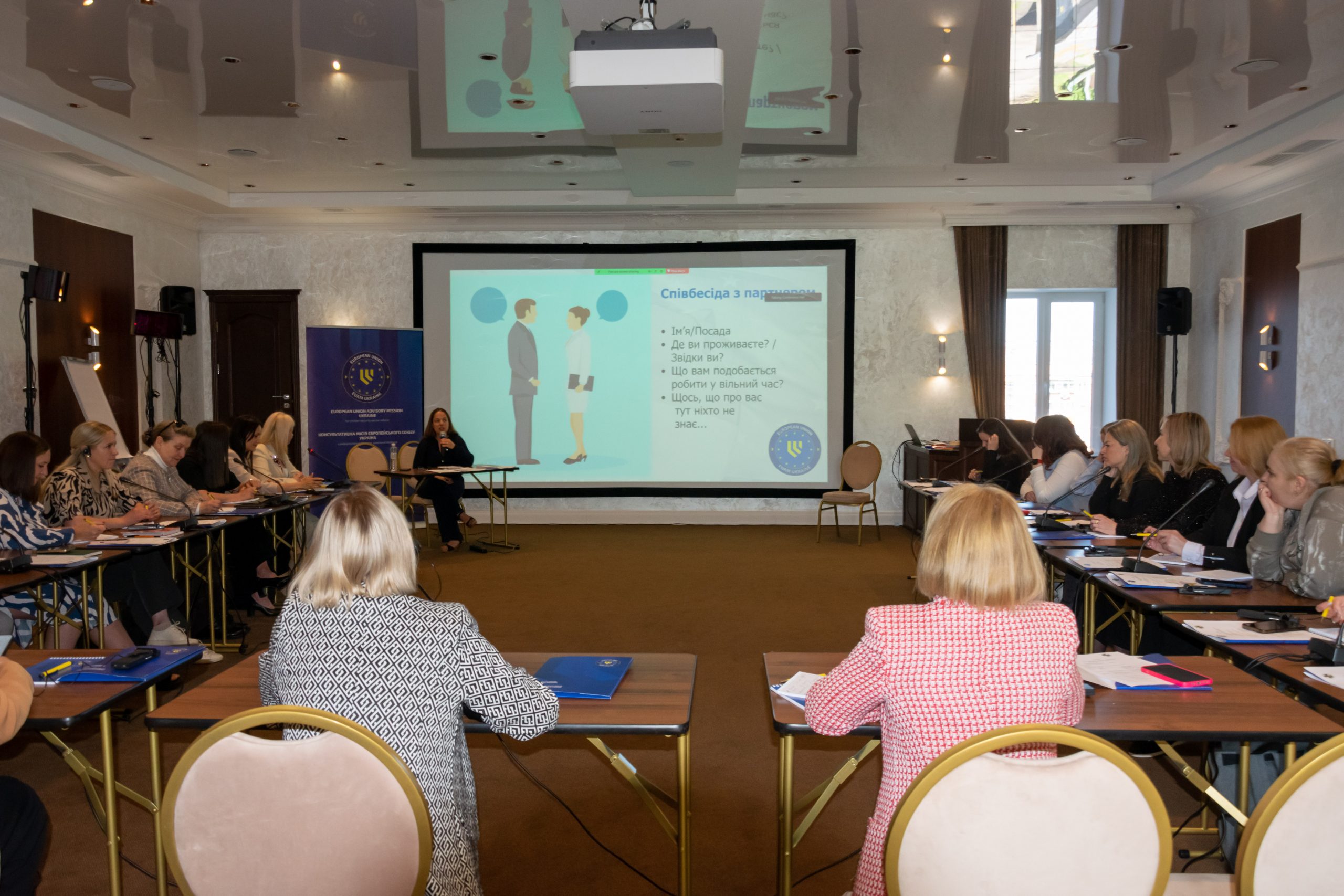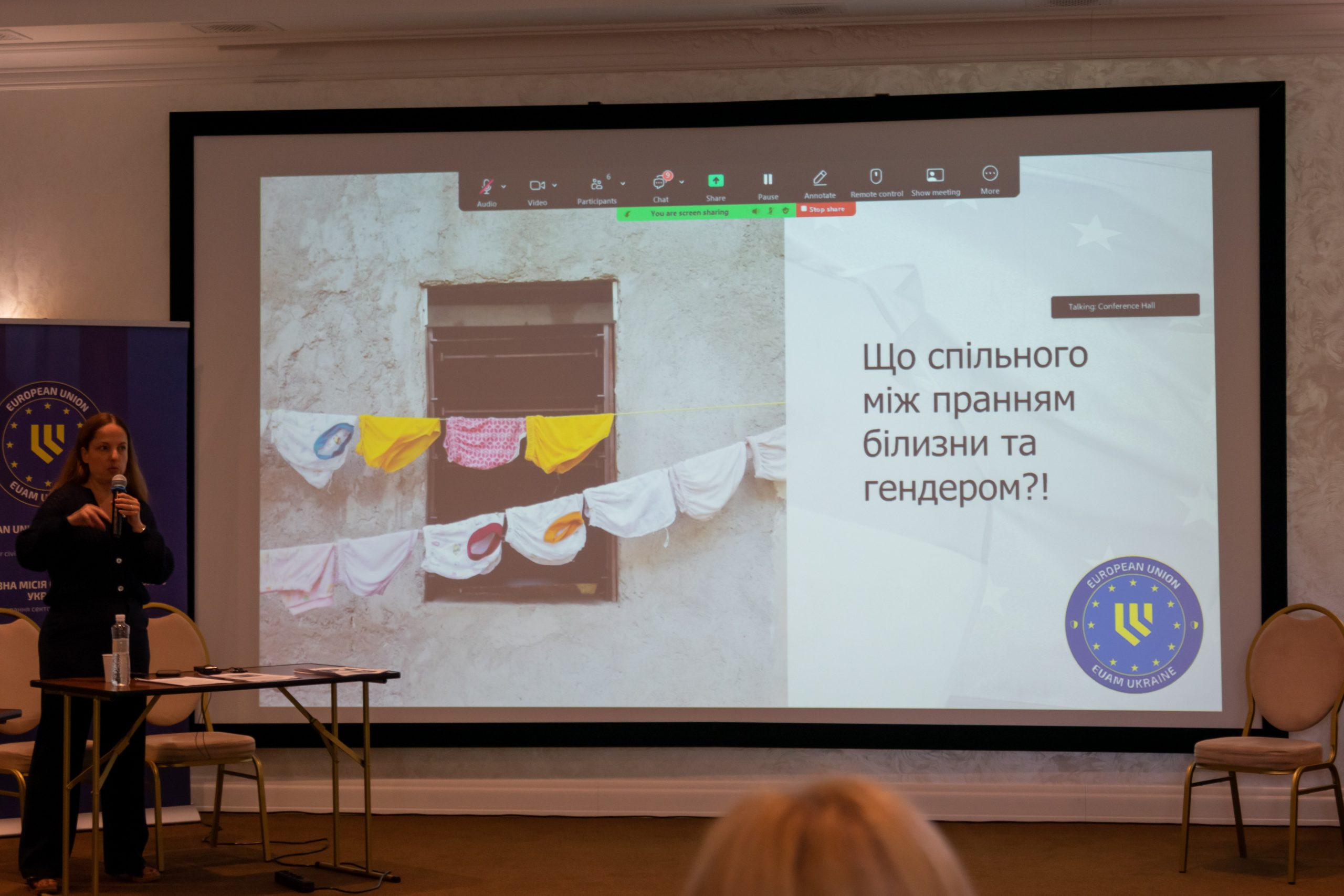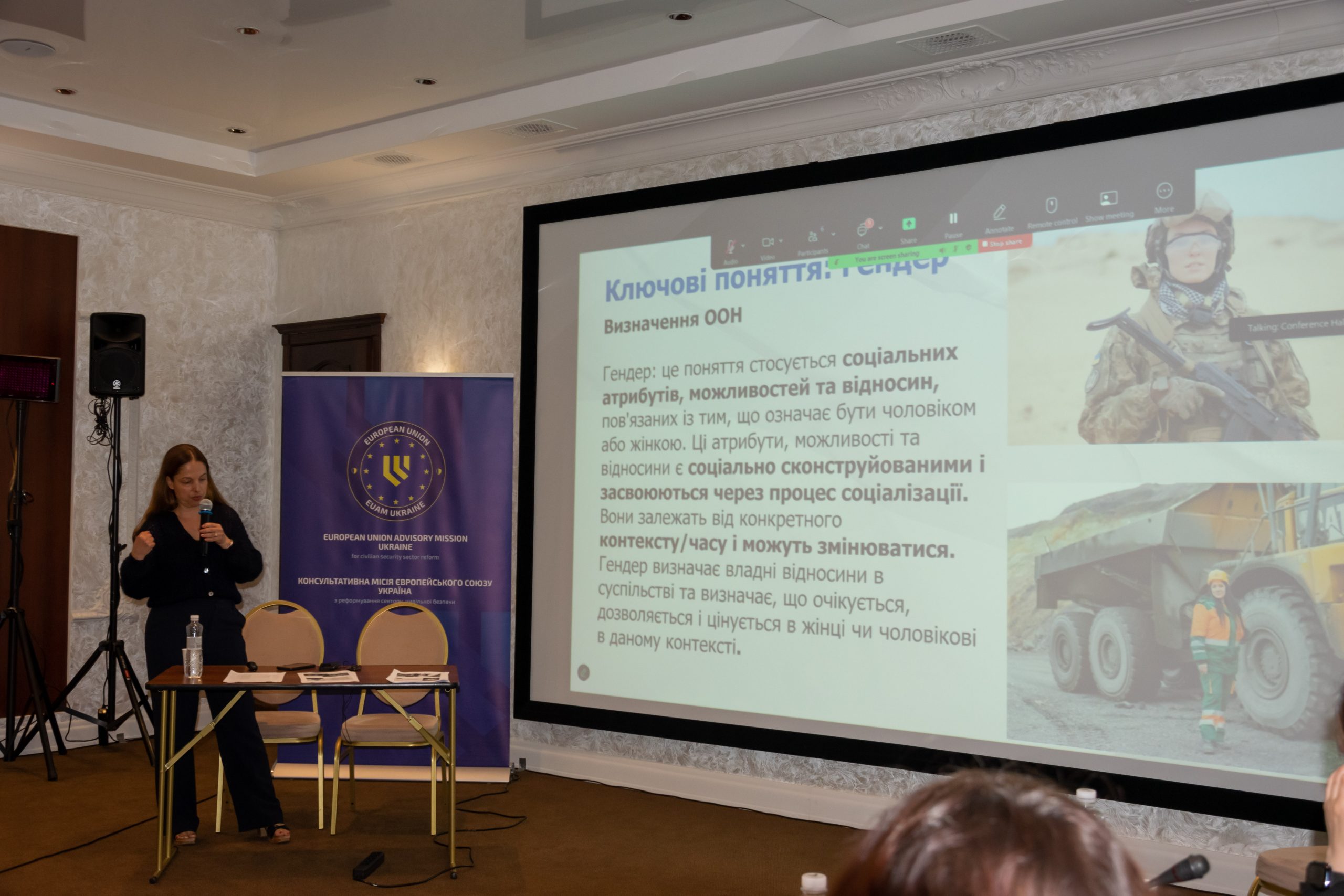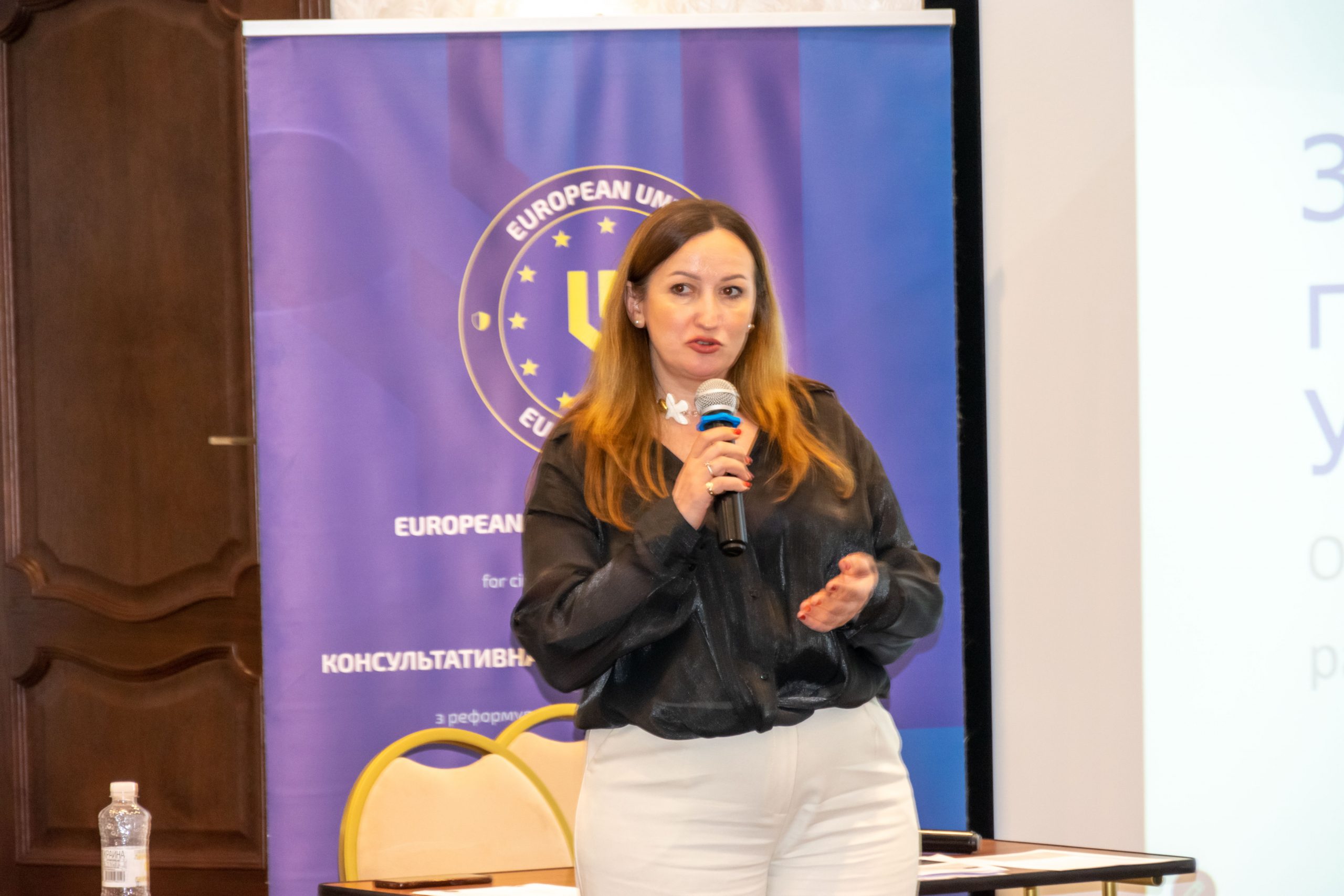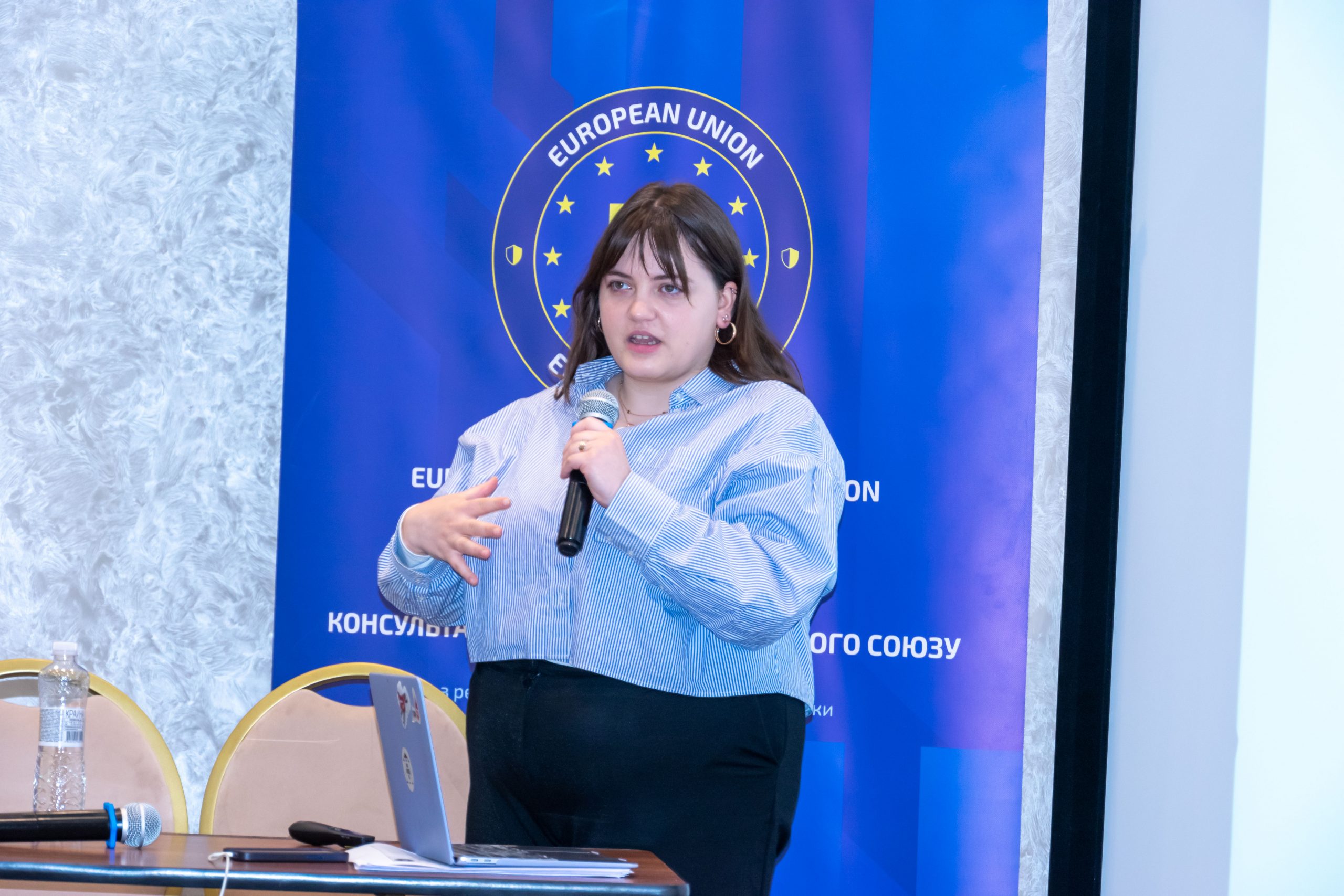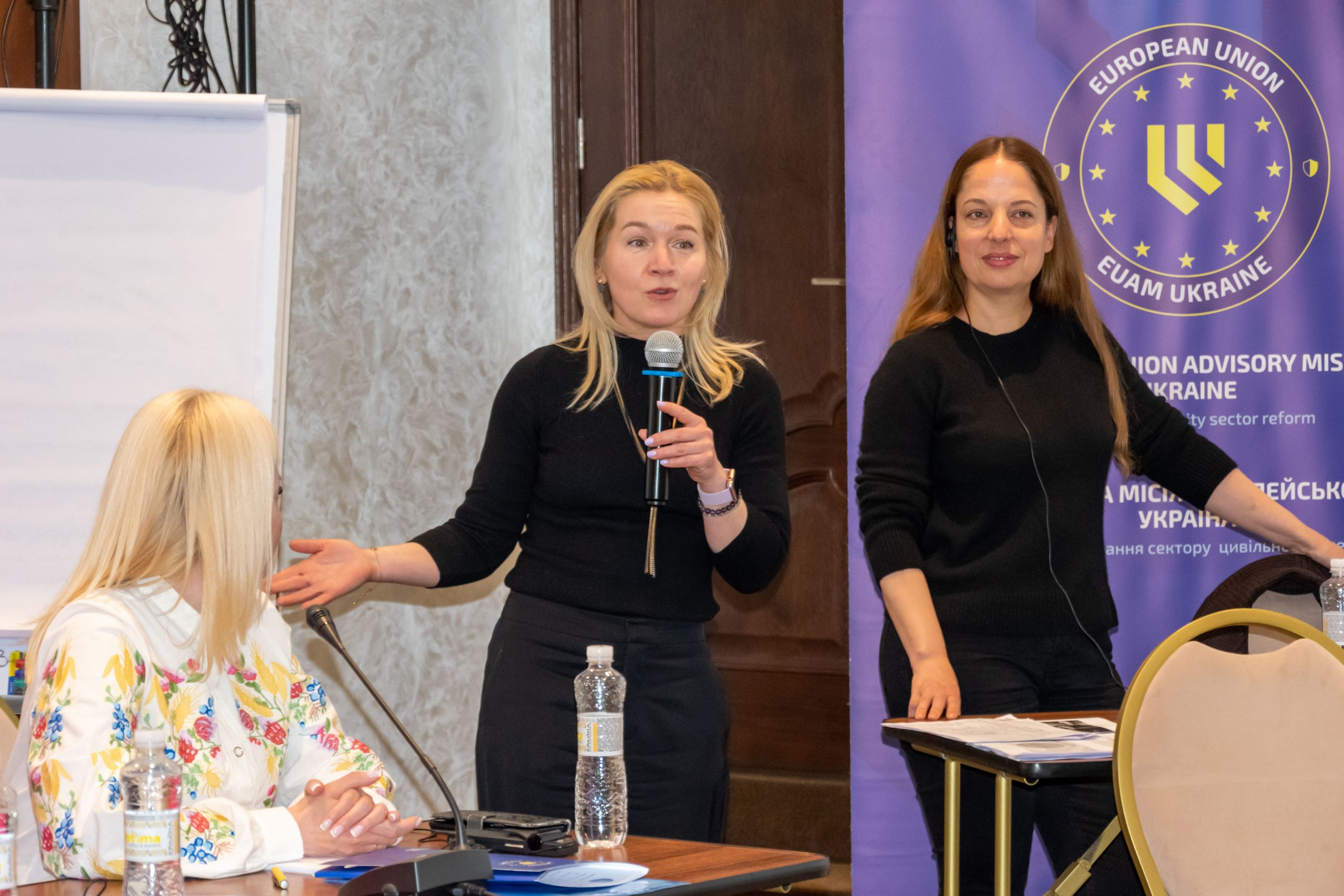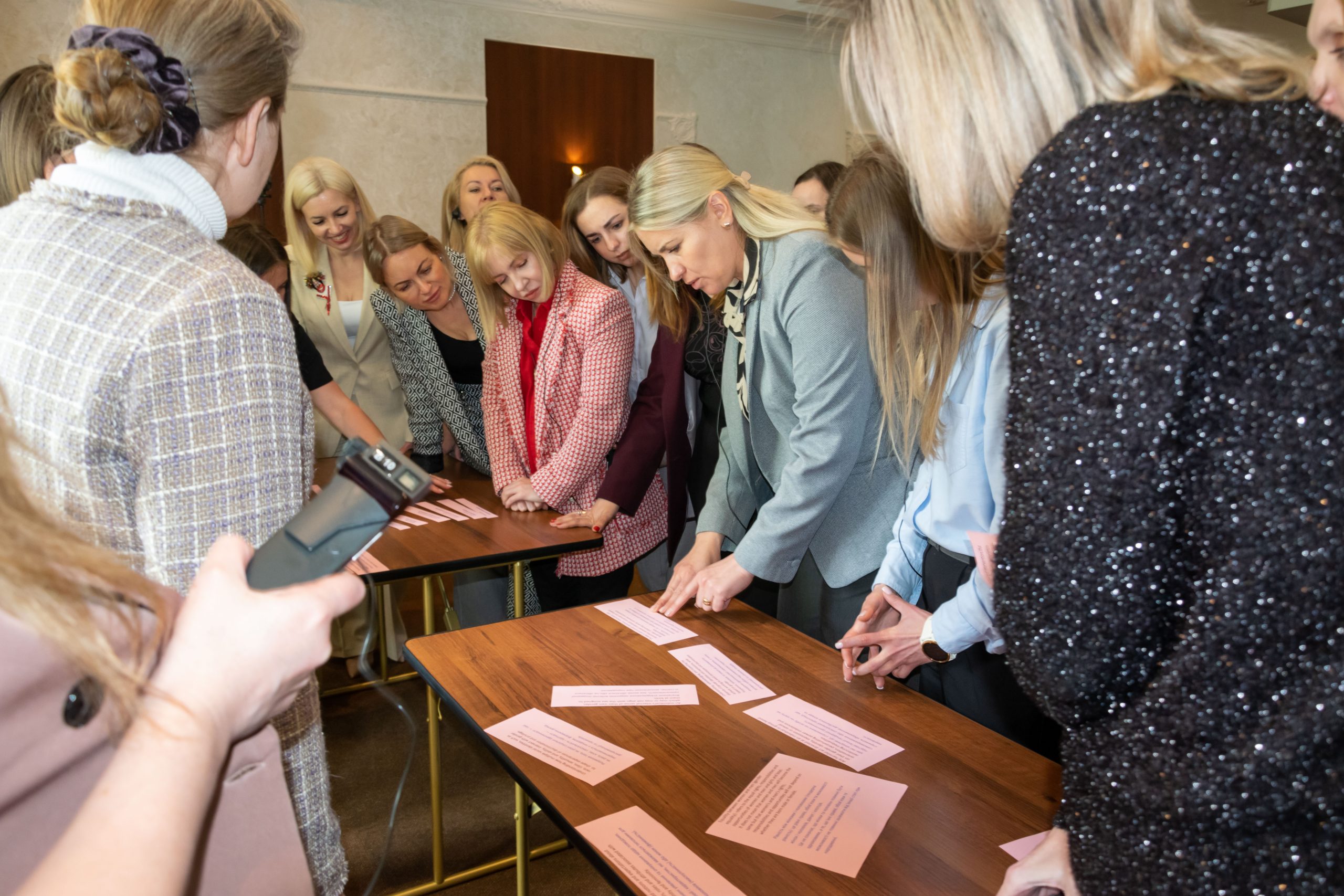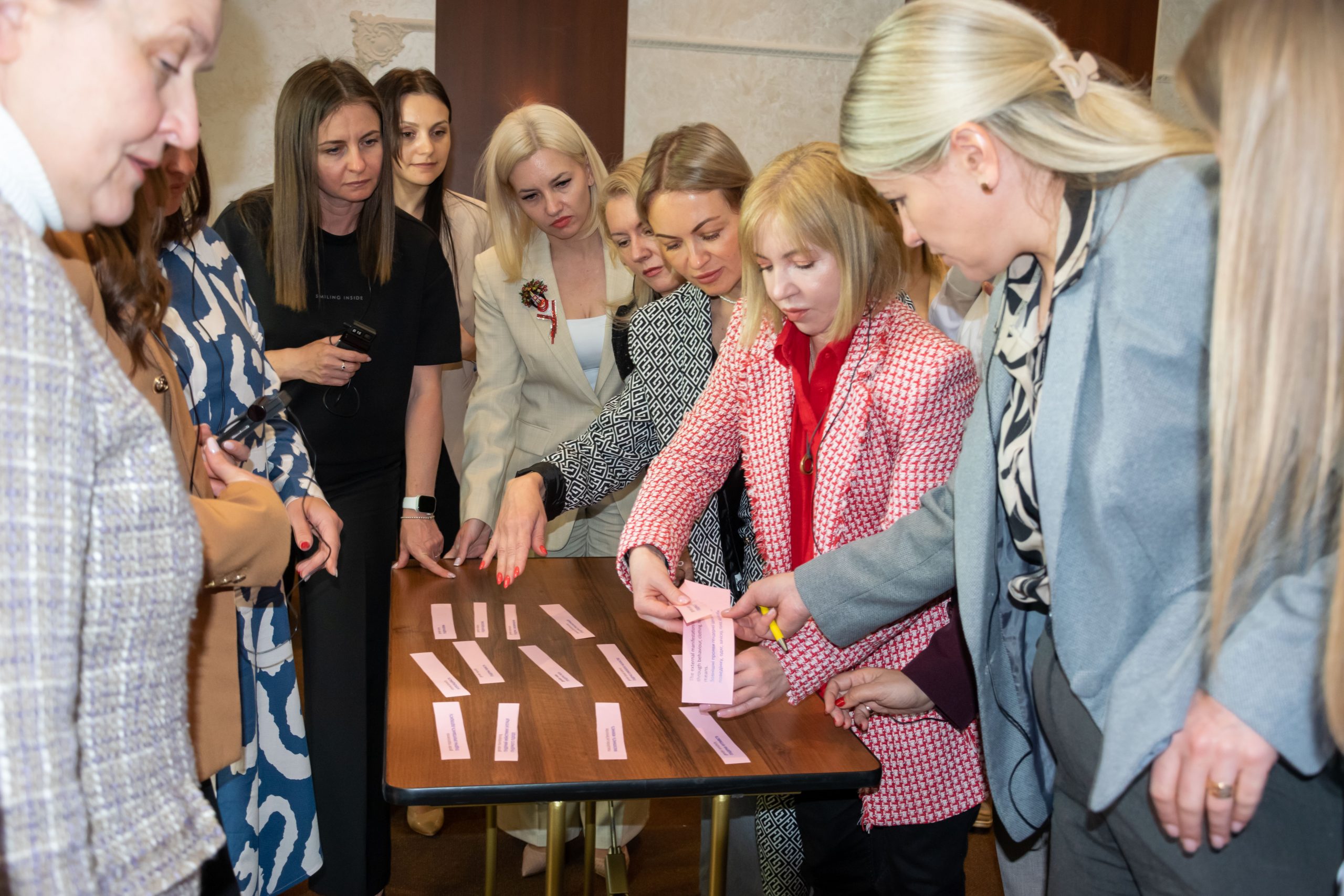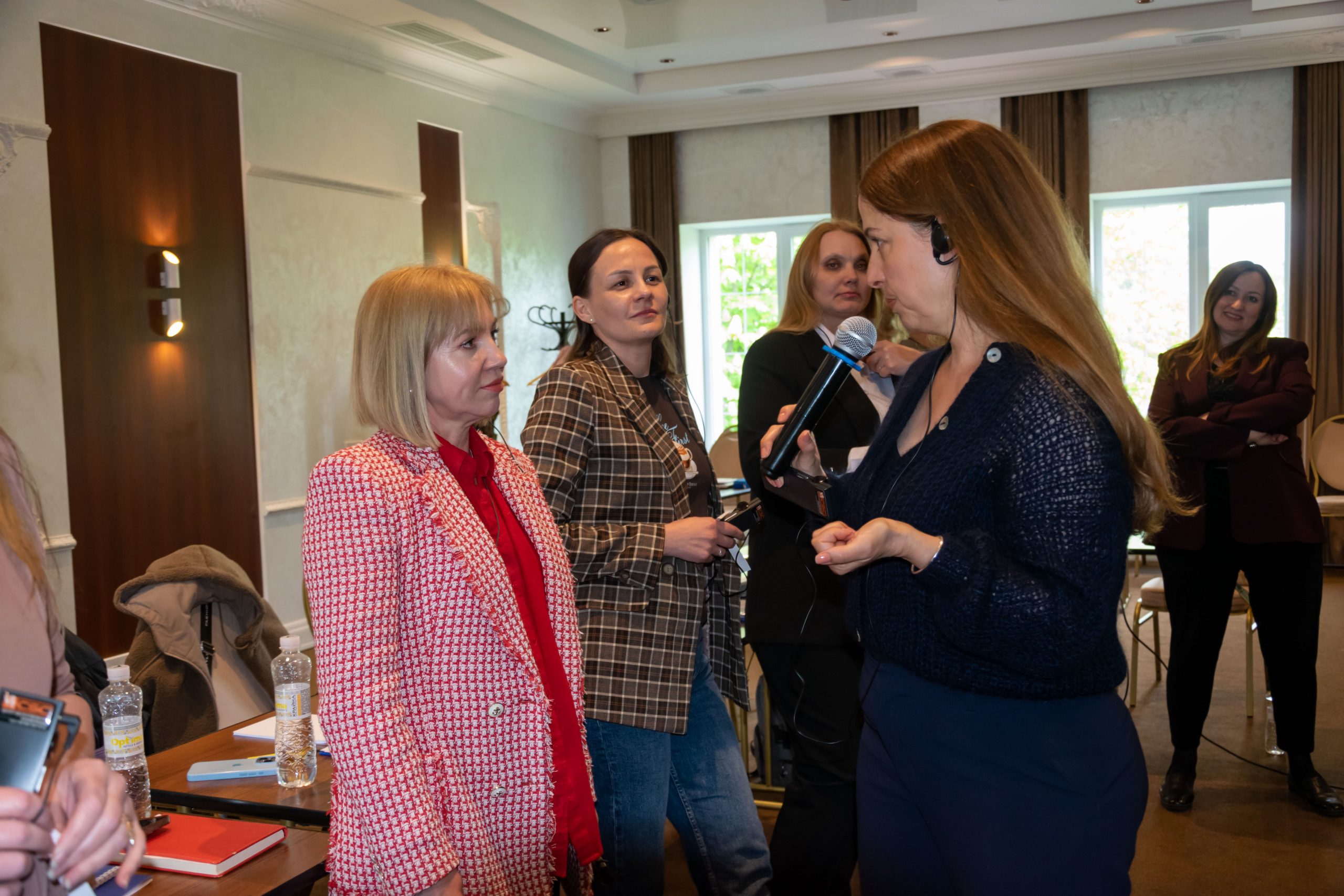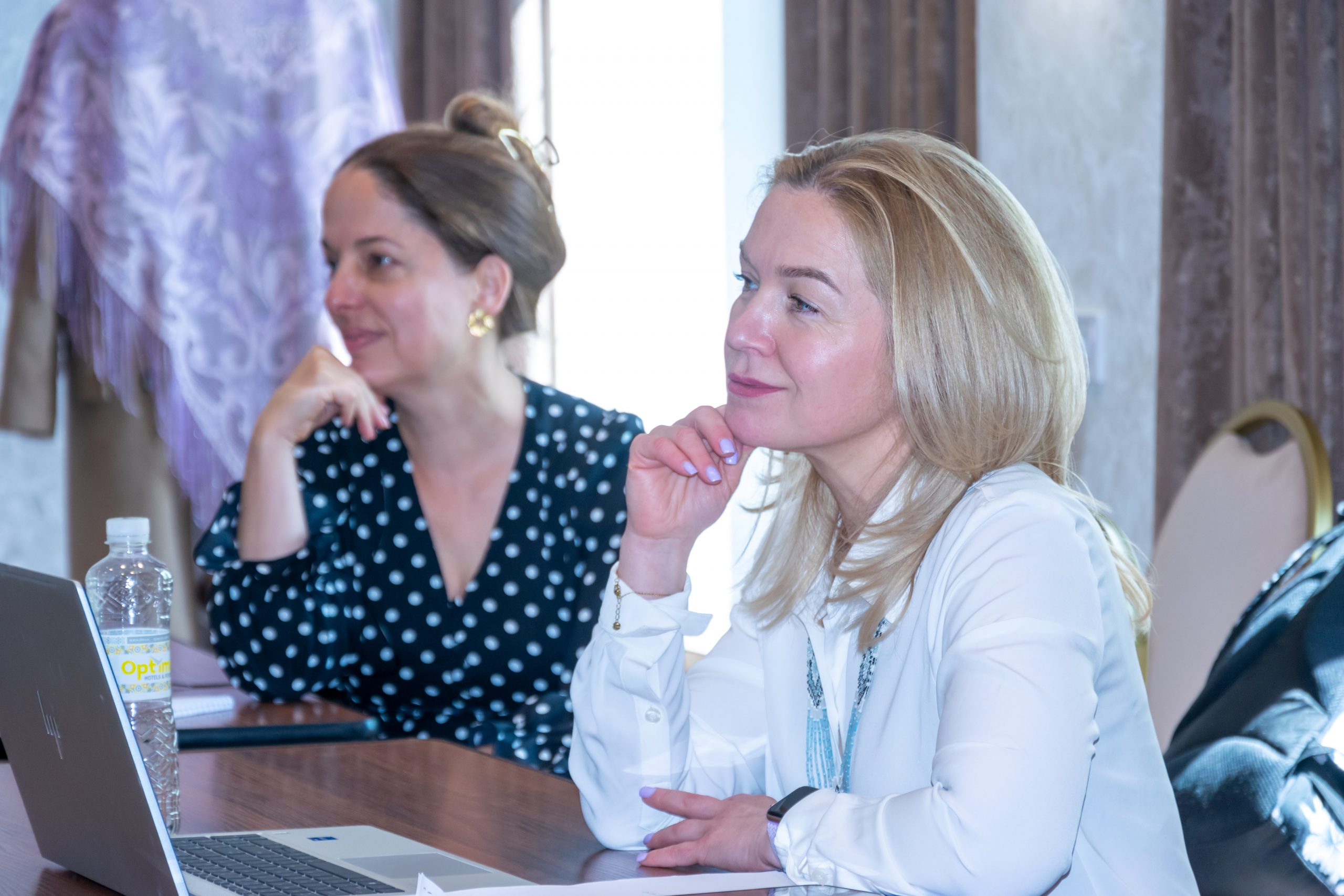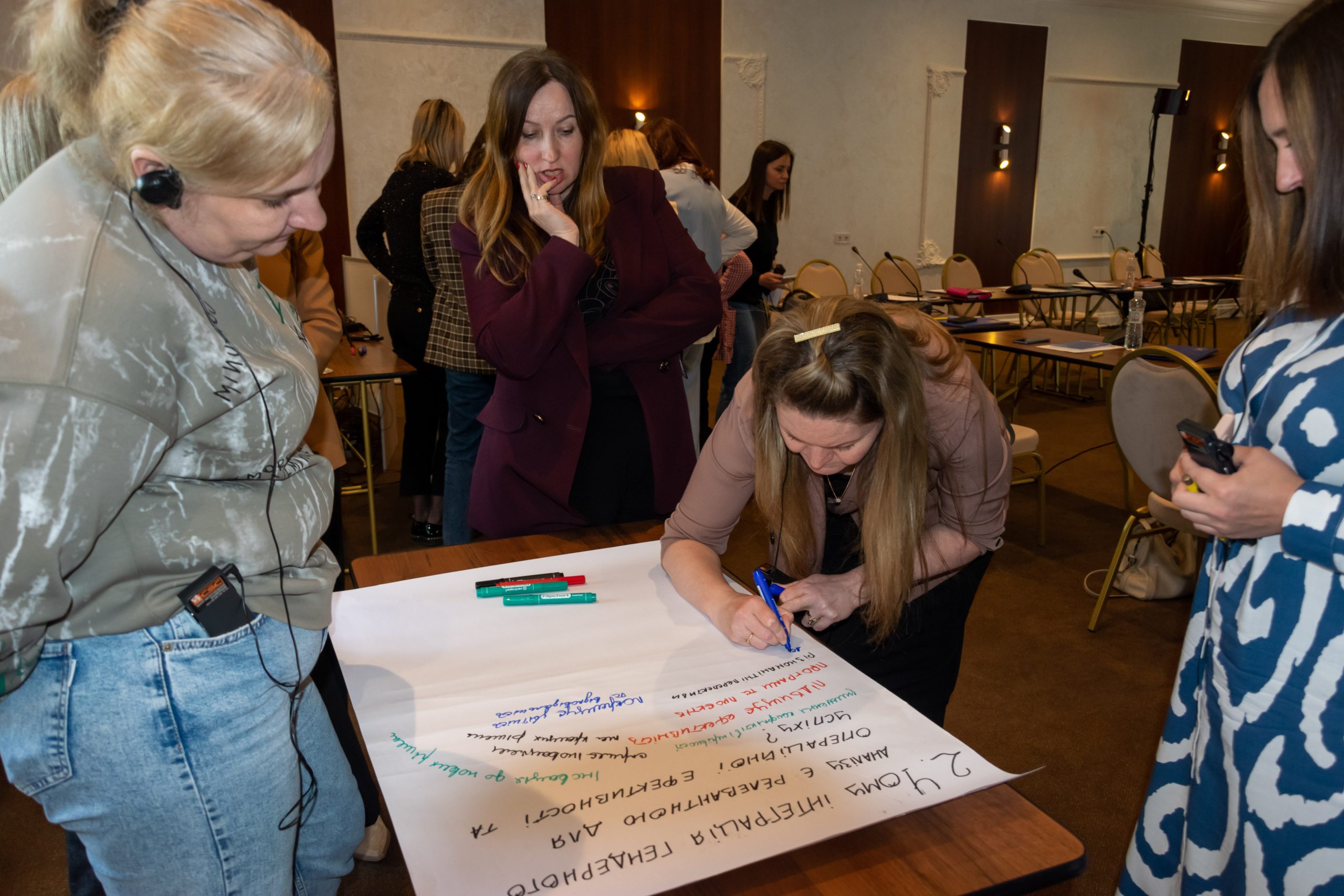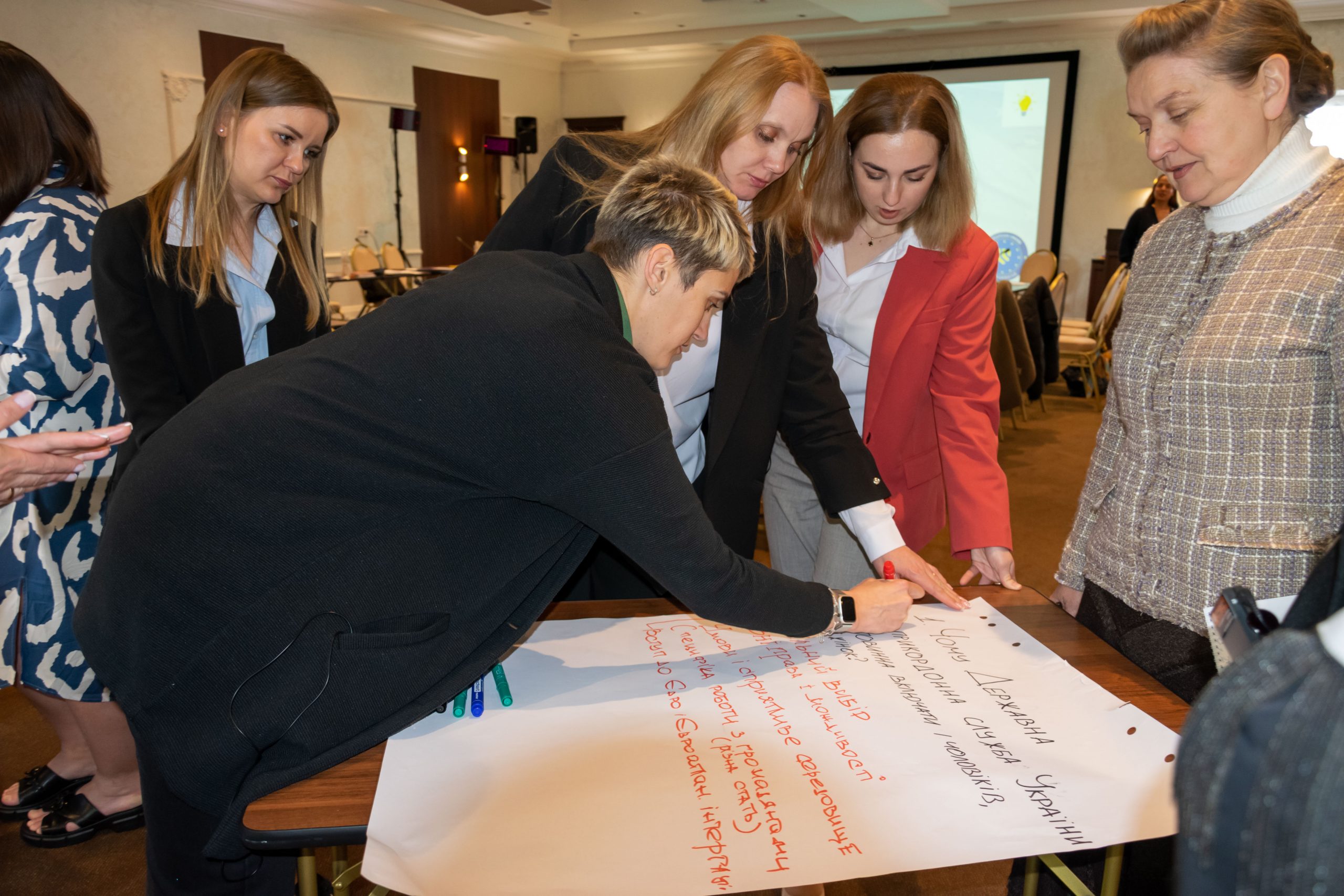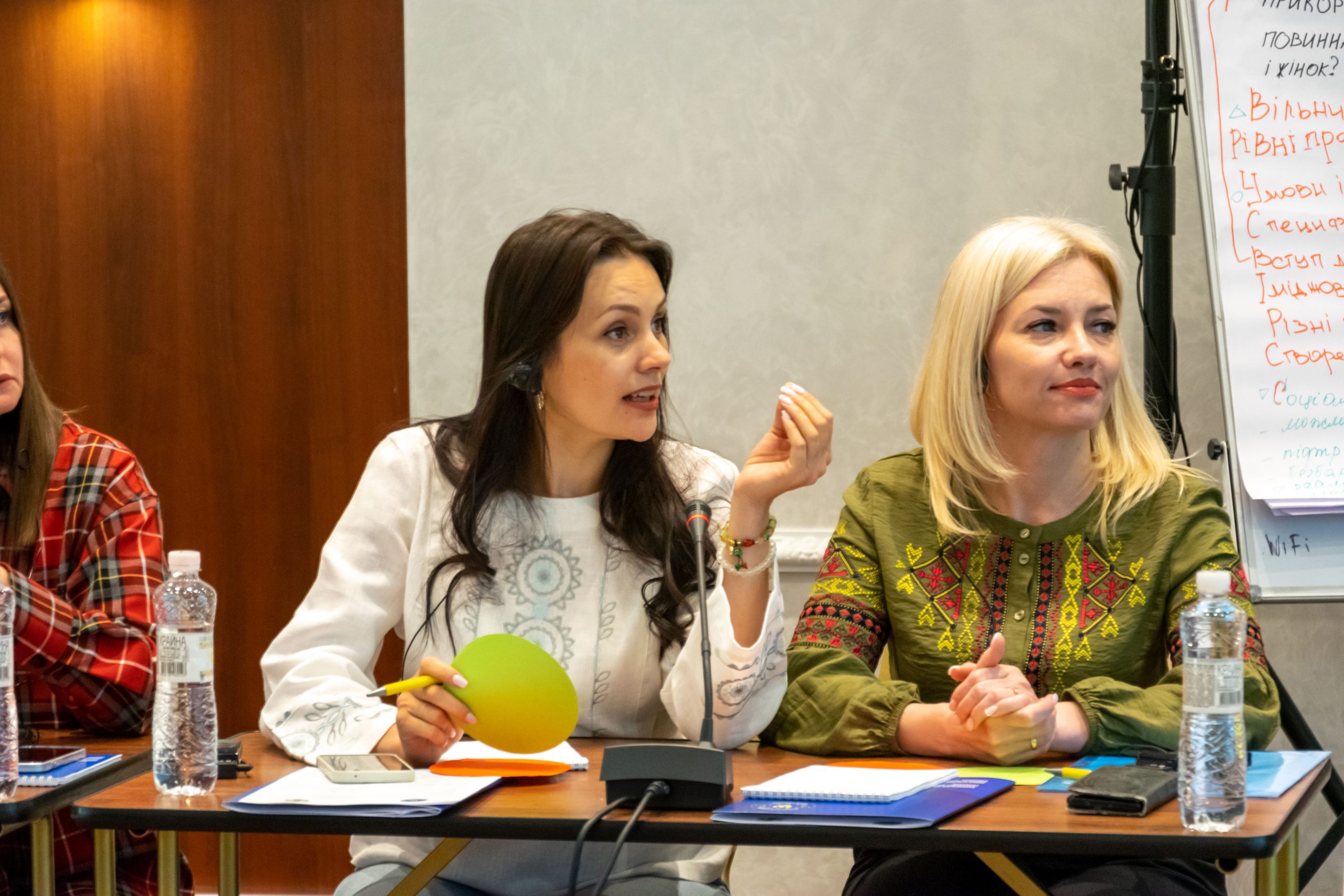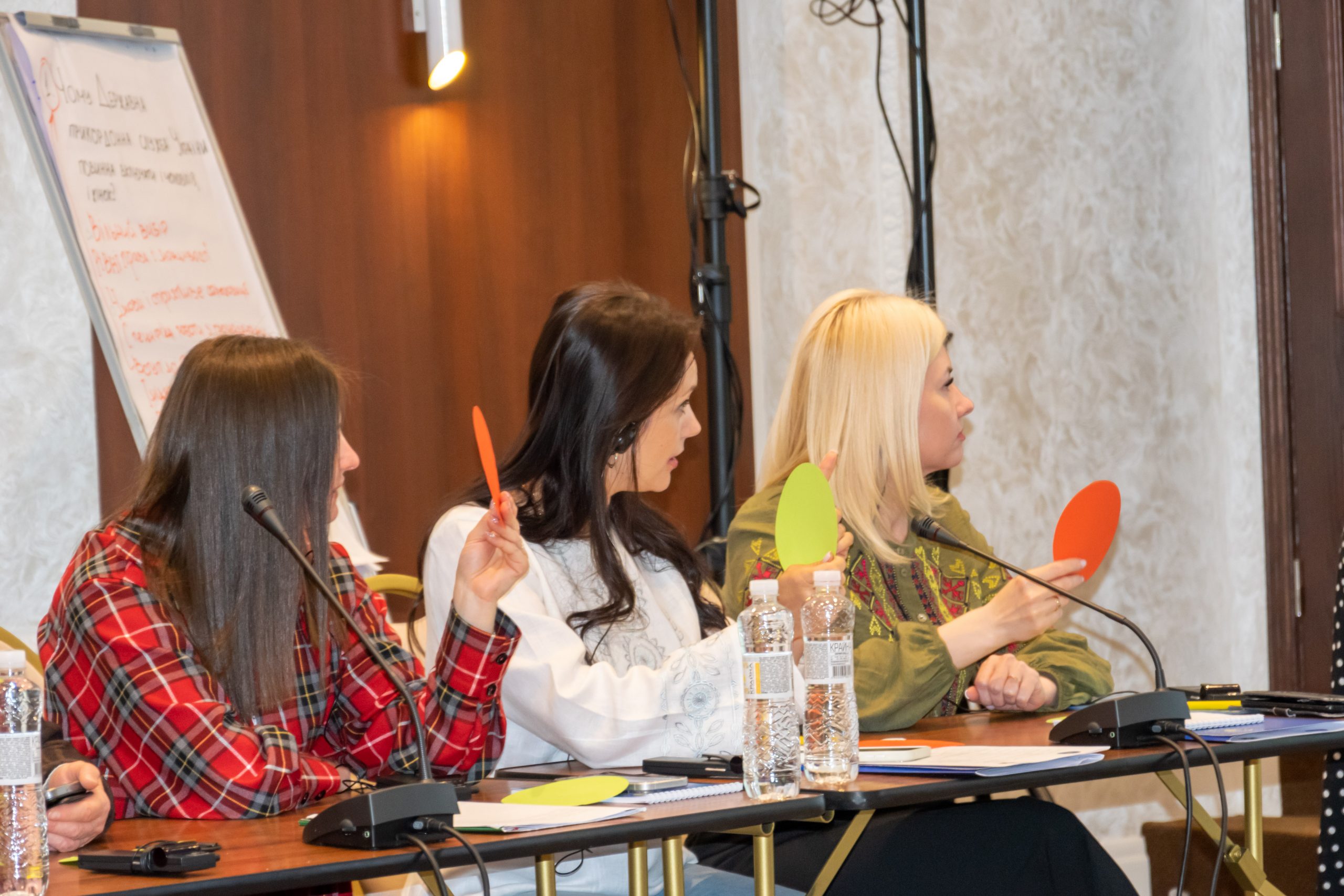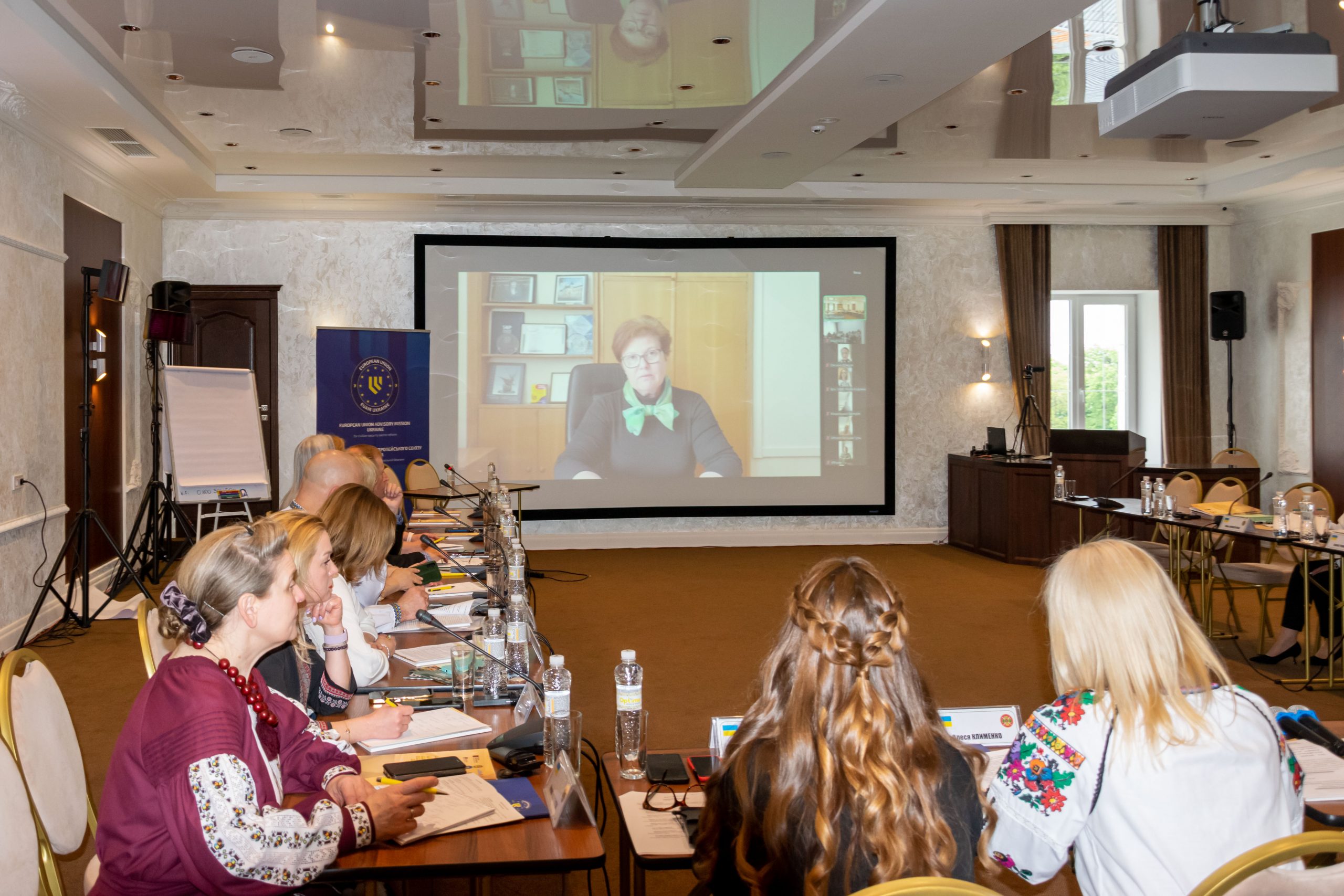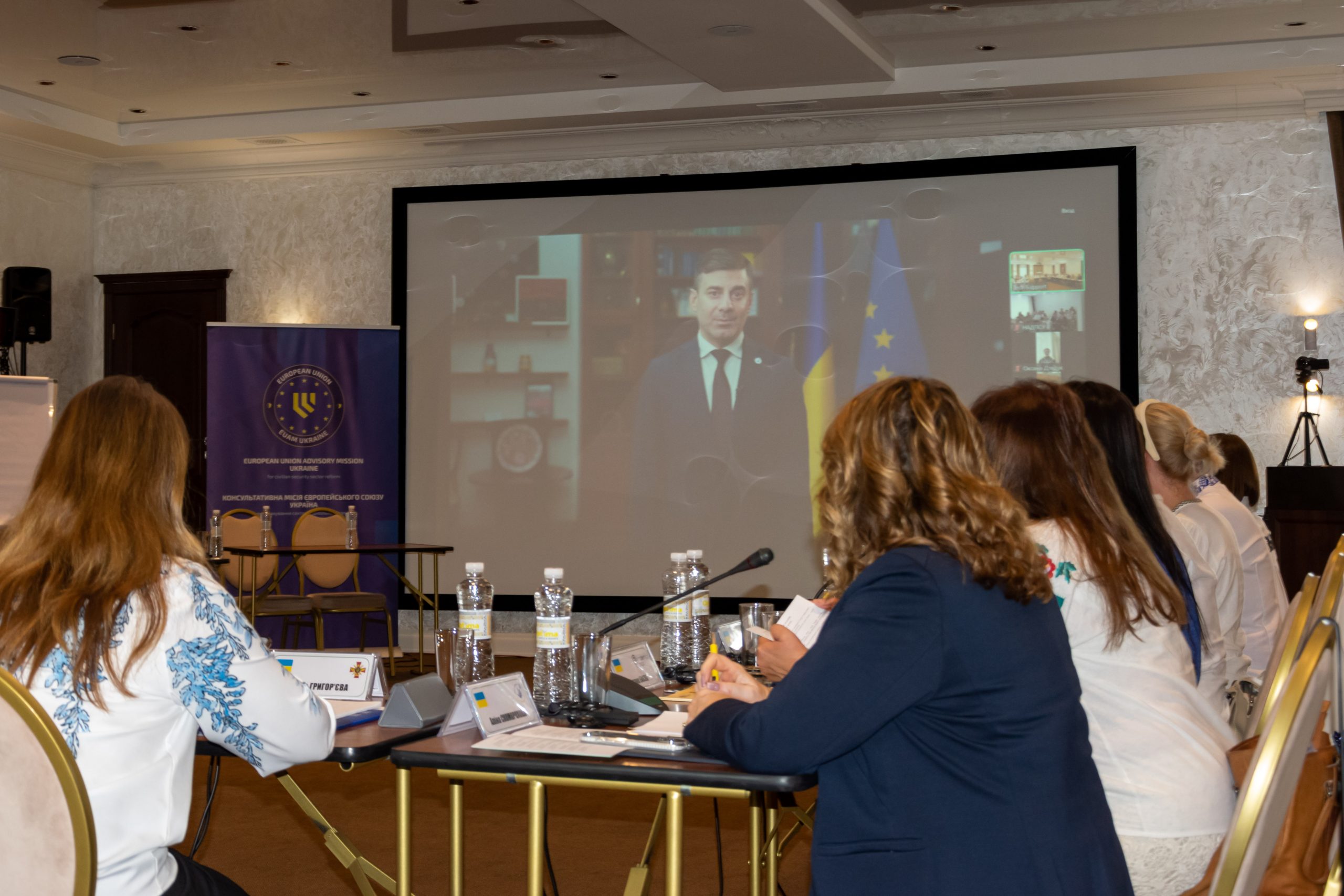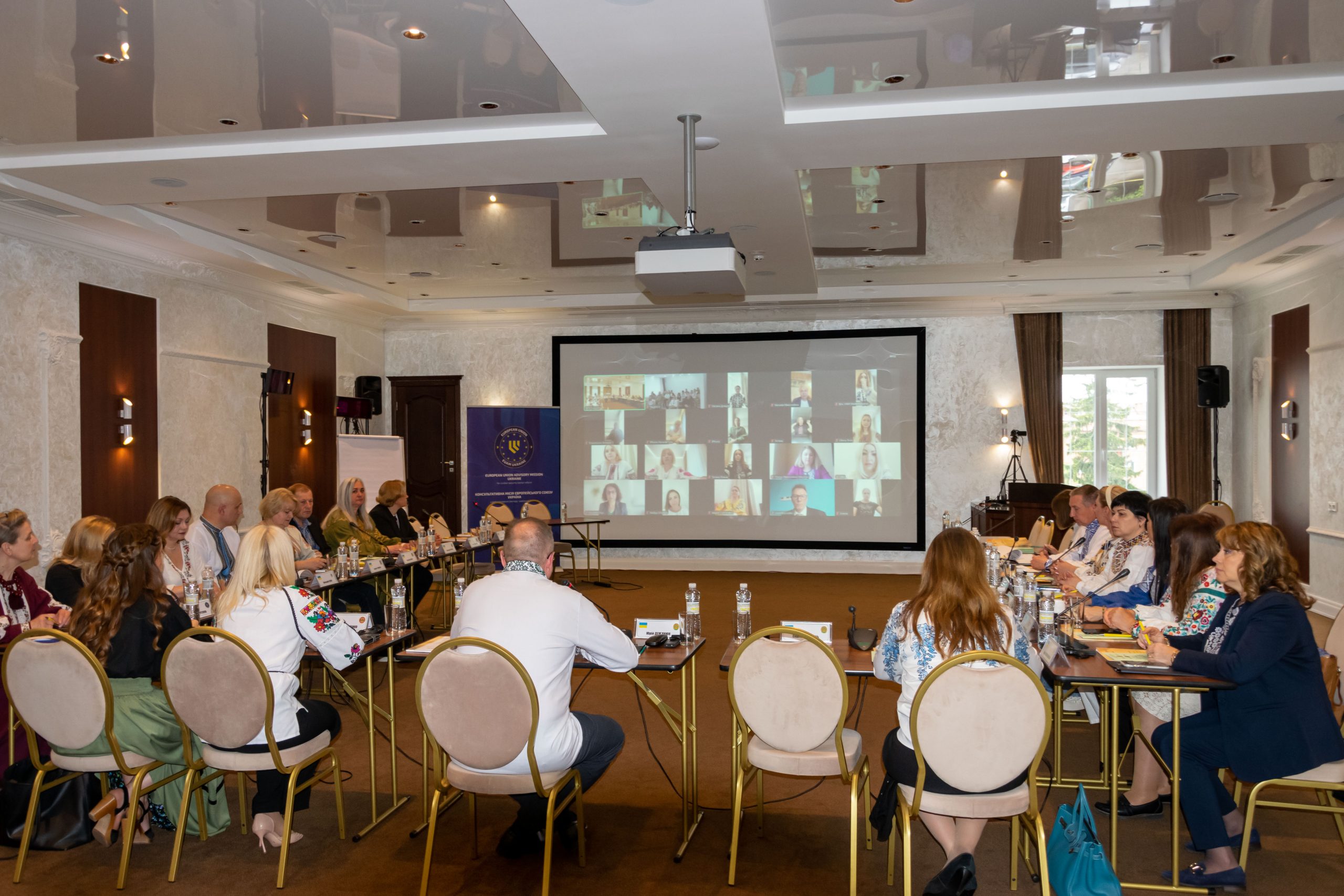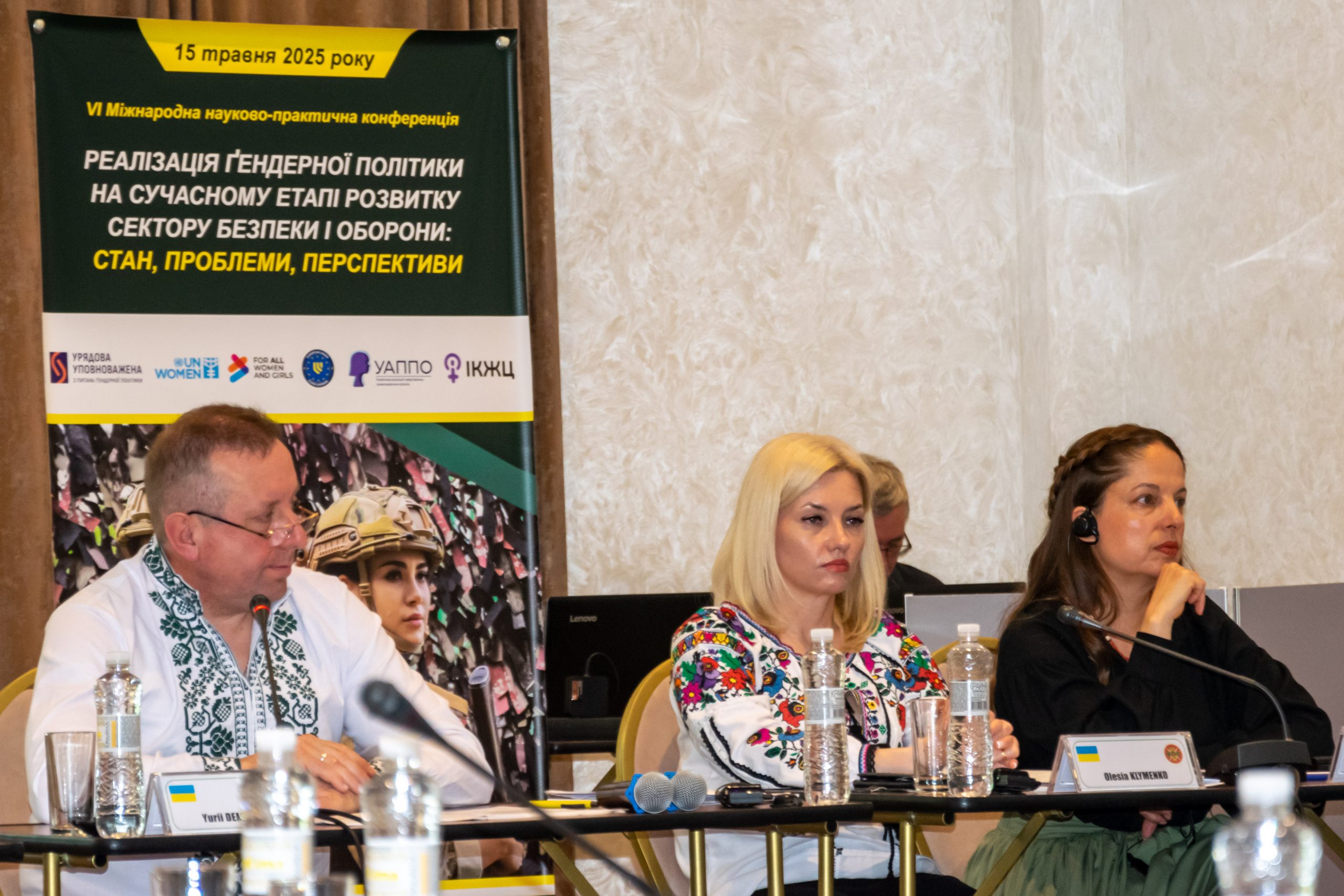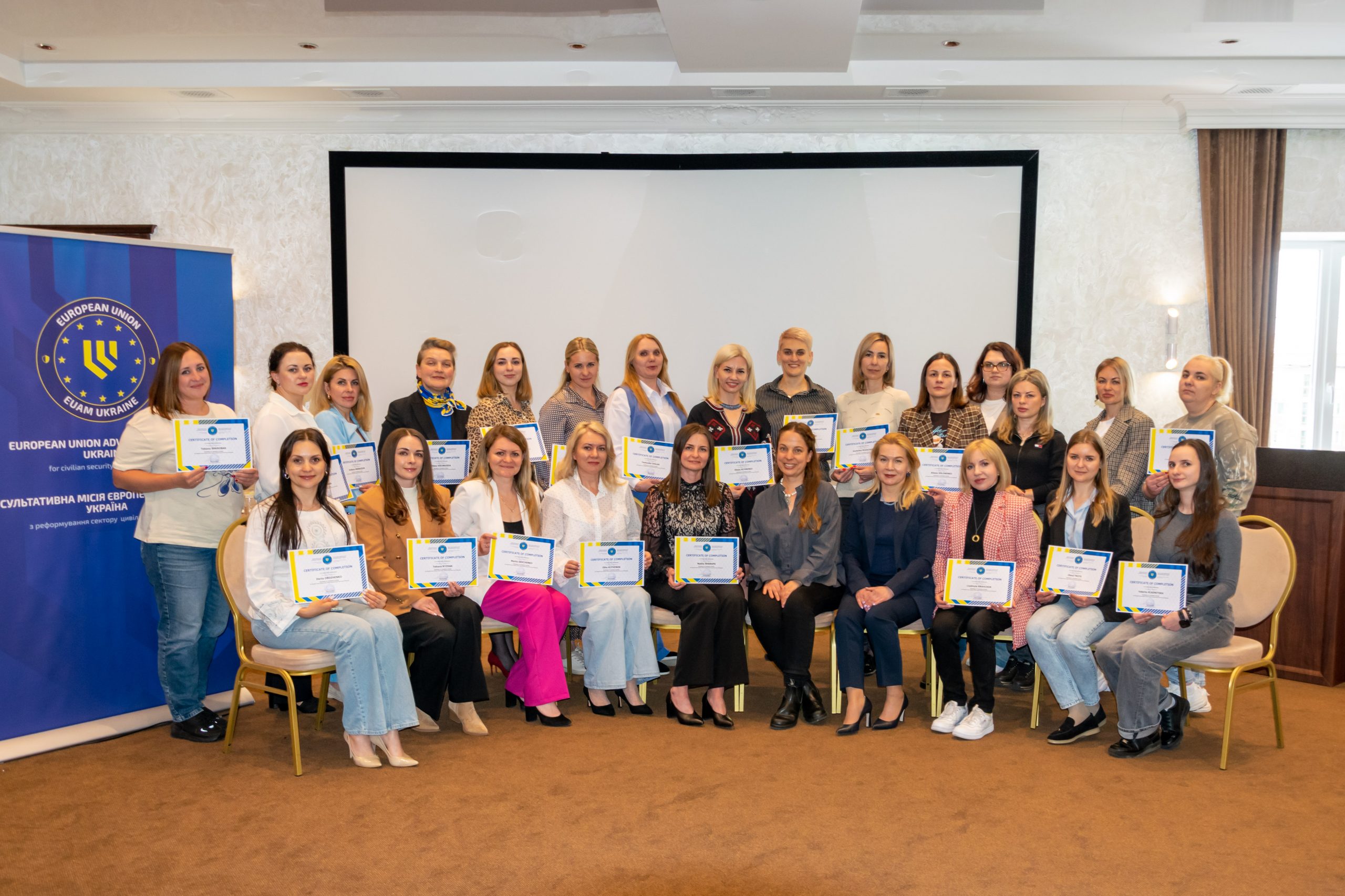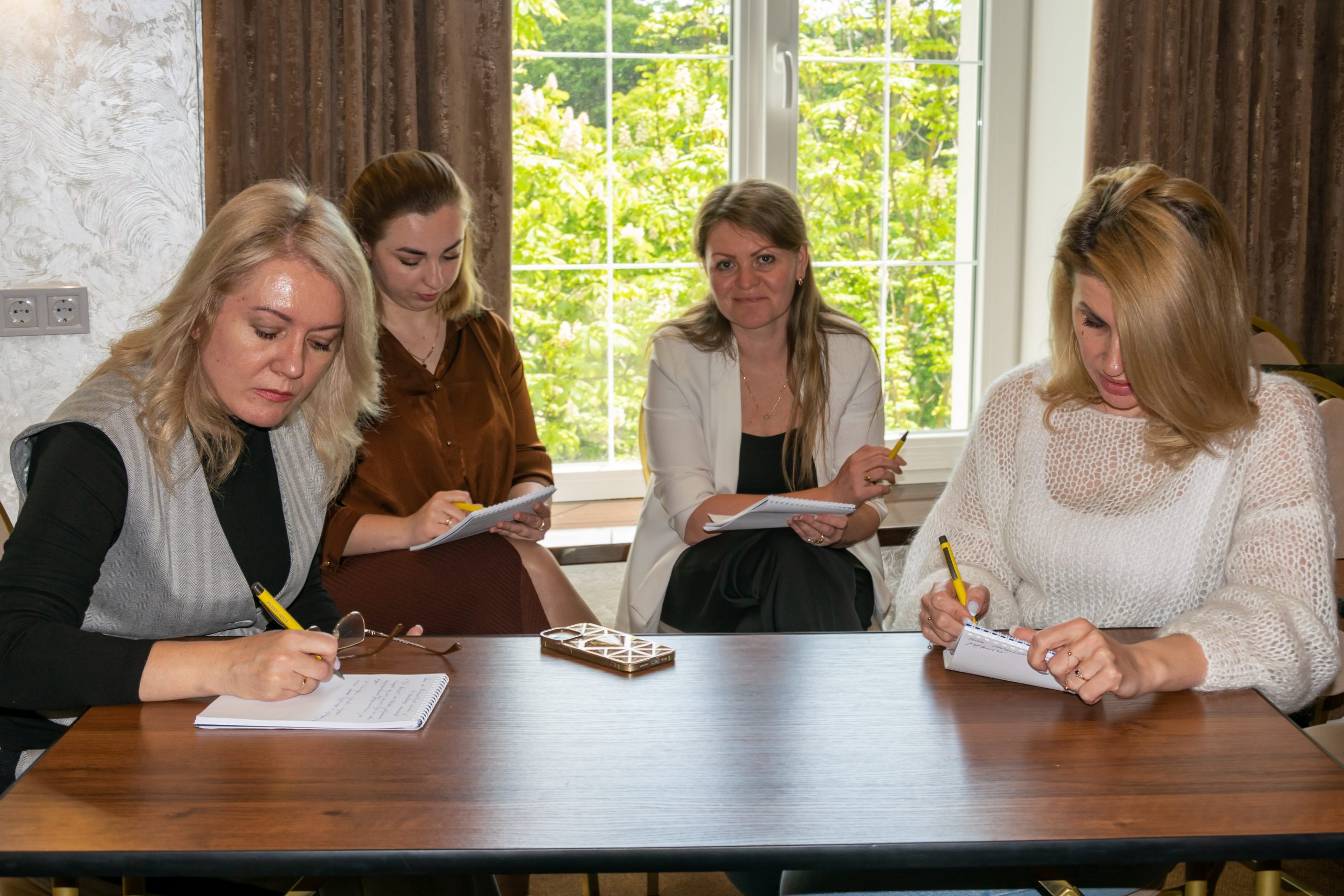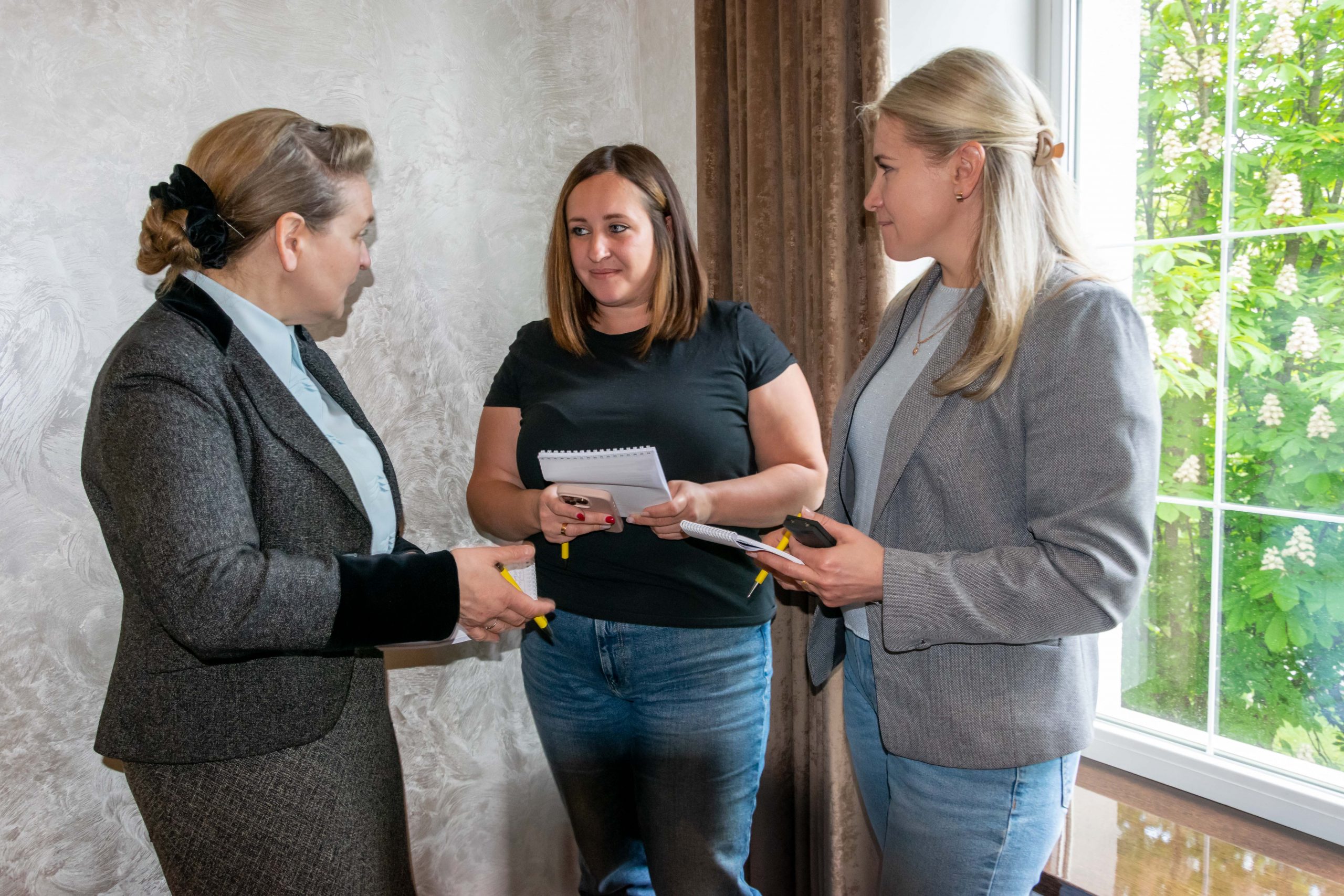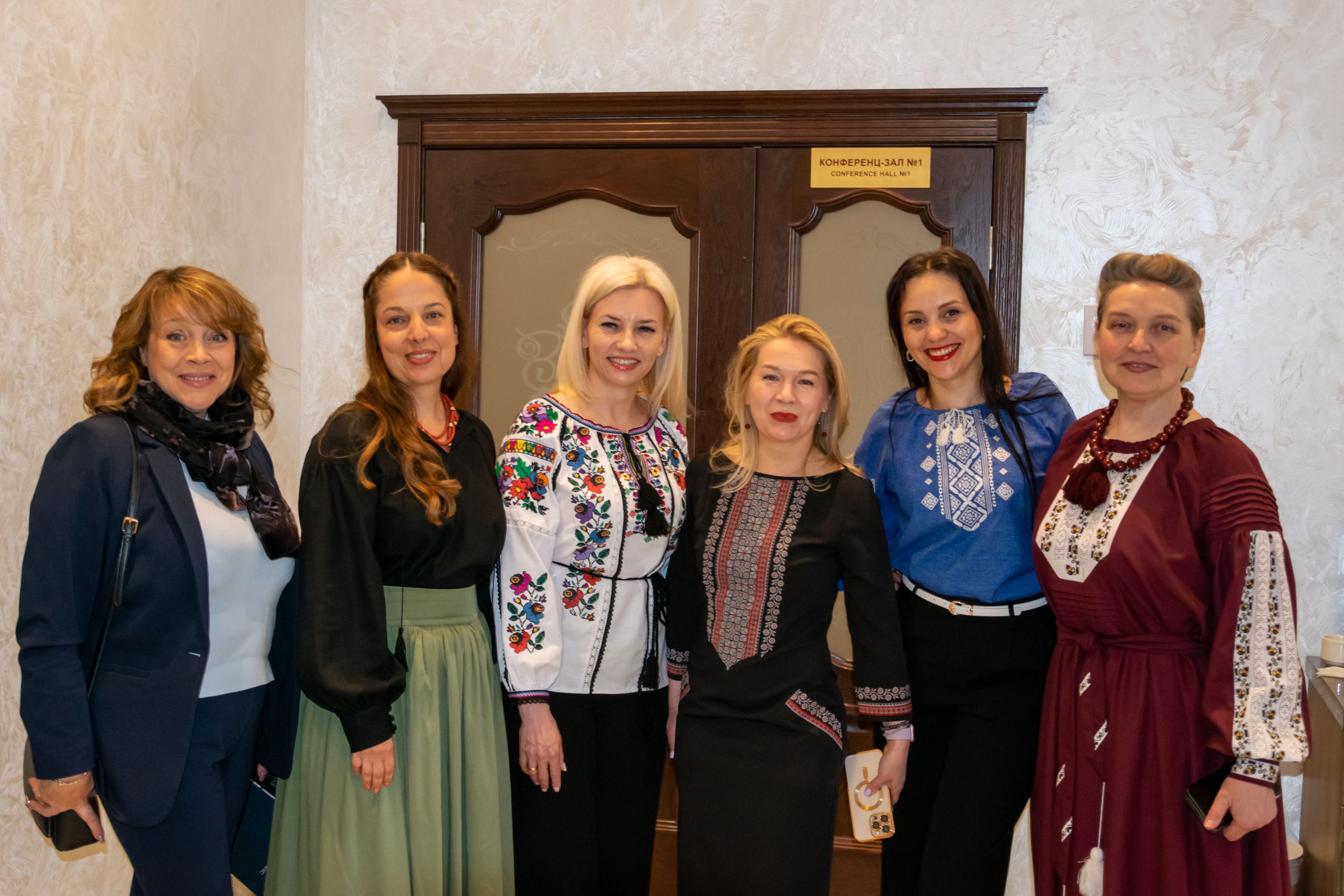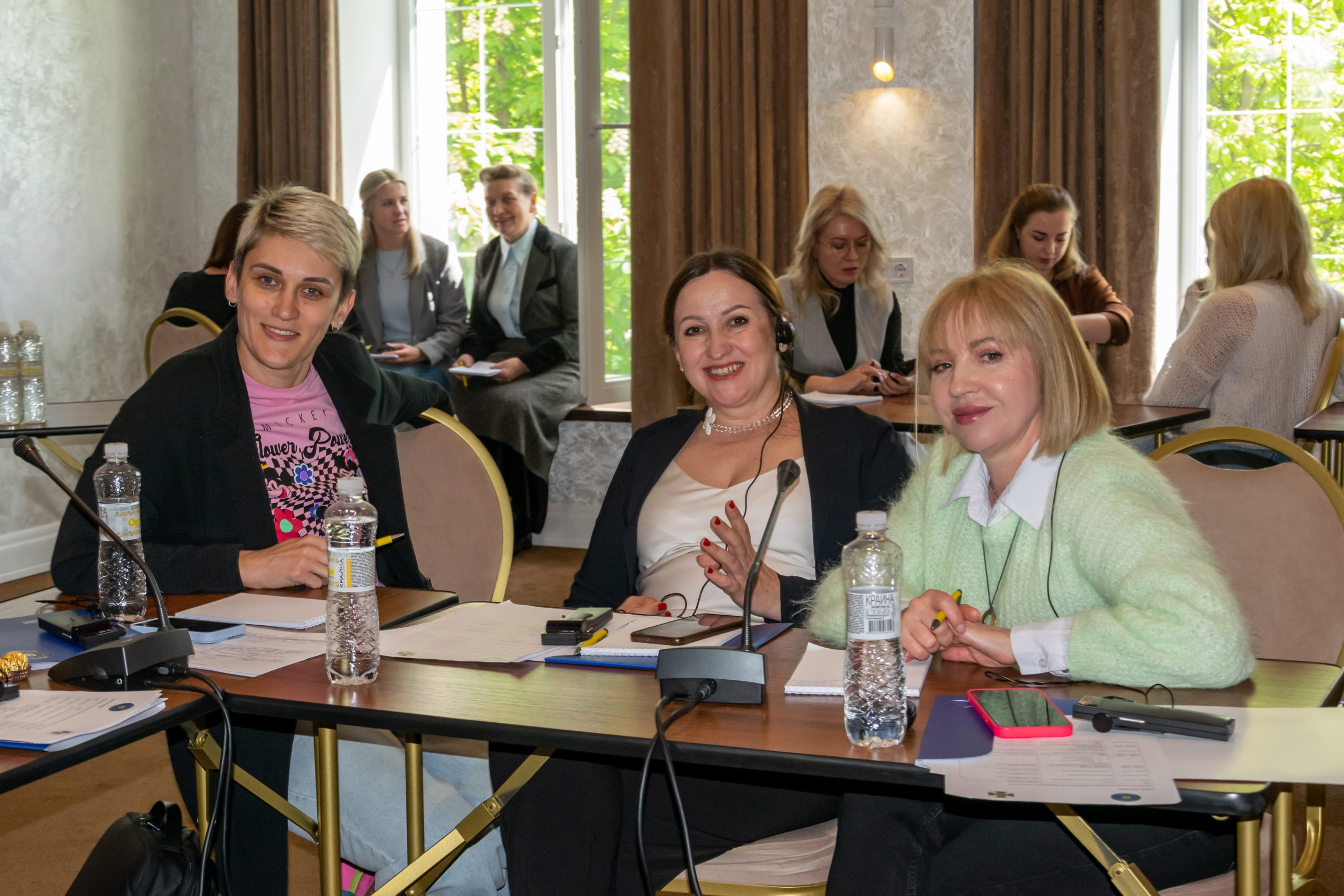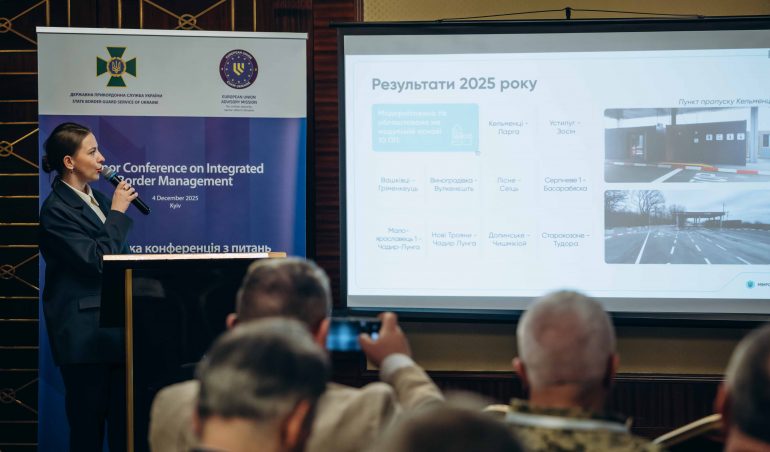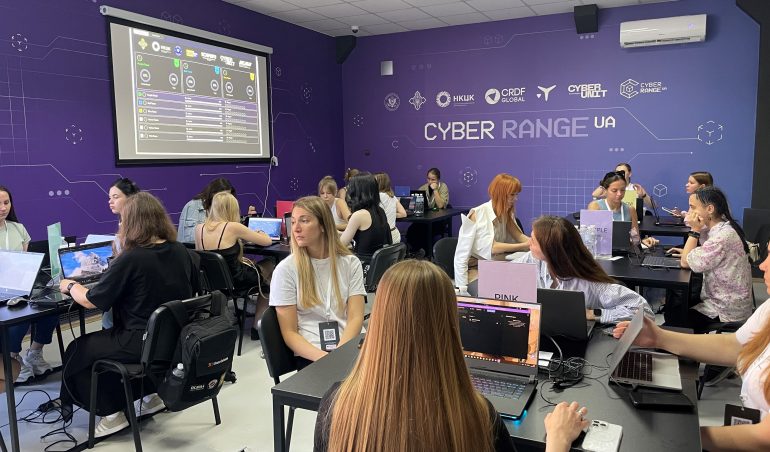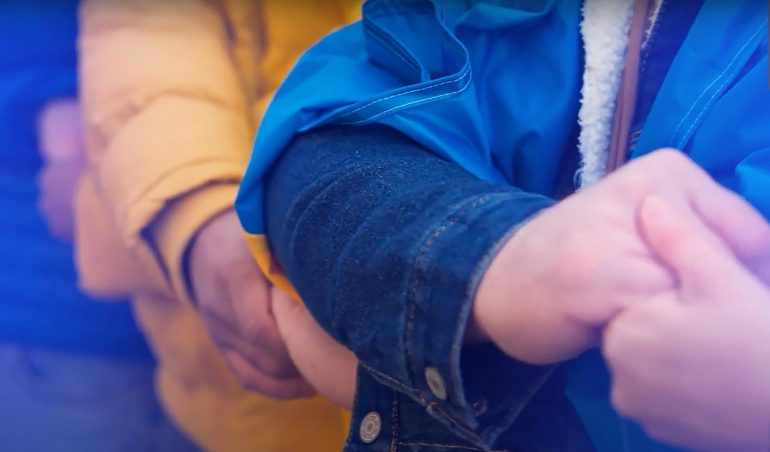Gender Equality Takes Root at Ukraine’s State Border Guard Service
May 23, 2025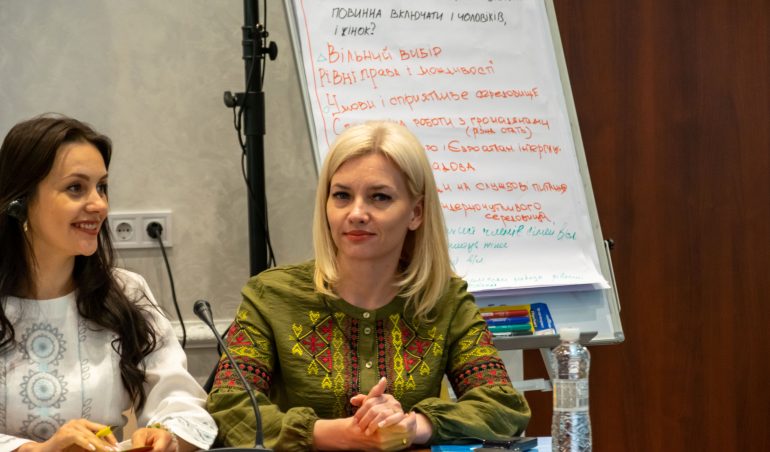
“What is gender?” “What do laundry and gender have in common?” “How do biases shape our decisions?” “What does inclusive leadership look like in practice?” These were just some of the questions explored during a four-day Training of Trainers for Gender Focal Points (GFPs) of the State Border Guard Service of Ukraine (SBGS), held in Khmelnytskyi last week.
The training brought together 24 female officers from SBGS detachments across the country — from Kyiv to Odesa, and from Lviv to Kramatorsk. Each officer is responsible for promoting gender equality within their unit and supporting the implementation of inclusive practices.
The aim was to strengthen their role — equipping them with the tools to deliver internal training, advise leadership, and apply gender-responsive approaches in line with EU standards and Ukraine’s reform agenda. Sessions combined hands-on training methodology with open discussions on unconscious bias, inclusive leadership, and respectful work environments.
“A civilian security sector is more effective if it represents the community it serves. This goes beyond including women and men, but also including different age groups, people with and without disabilities, and from ethnic or religious minority communities,” said Anette Schwitzke, EUAM’s Gender Adviser and lead trainer. “Only a diverse civilian security sector can accurately understand and tackle the risks and concerns of the population. By doing this, it will build more trust, get better access and intelligence. Ultimately, this will lead to a better response.”
Oksana Hryhorieva, Gender Adviser to the General Staff of the Armed Forces of Ukraine, joined as an external contributor. Her insights helped connect the SBGS experience with broader developments in Ukraine’s defence sector and highlighted the value of interagency cooperation.
Marta Pavlyshyn, a lawyer and trainer from the Ukrainian Women Lawyers Association “JurFem,” contributed to the training with sessions on both international and national policy frameworks on gender equality. She also led a discussion on the evolving role of gender focal points as agents of institutional change and advocates for equality and diversity within the security sector.
The training also included participation in the Annual International Gender Conference, hosted by the SBGS Academy with EUAM’s support. This year’s theme — “Gender Mainstreaming in the Security and Defence Sector: stage, challenges, perspectives” — gave participants an opportunity to connect their fieldwork with national policy discussions.
Speakers included Government Commissioner for Gender Policy Kateryna Levchenko and Ukrainian Parliament Commissioner for Human Rights Dmytro Lubinets. EUAM’s Gender Adviser Anette Schwitzke noted that Ukraine has made tremendous progress by adapting existing policies and drafting new legislation at an impressive pace. The next step, she stressed, is ensuring these policies are implemented effectively by addressing long-standing institutional cultures and practices.
What Training Participants Said
The training offered space for open dialogue. Participants shared professional and personal challenges — from navigating unequal expectations to balancing service and family life. Many described the experience as a rare opportunity to pause, reflect, and reconnect with others facing similar pressures.
“The greatest challenge for women in law enforcement is combining service and family responsibilities. Women work as hard as, or even harder than, men, and still face huge expectations to take care of their homes and children,” said one of the participants.
“We are all different — in rank, experience, family situation — but we share the same drive: to grow, to serve, and to bring gender policies to life in the Border Guard Service,” shared another.
“When we talk about different gender roles in society and particularly in law enforcement agencies, we are still fighting for our place. We are constantly proving our professionalism and skills. You always need to work three times harder just to be seen as equal and deserving of respect,” added another one.
For EUAM, the training is part of a broader effort to support Ukraine’s progress towards EU values, not only through legal reforms, but by building skills, networks, and leadership from within. Strengthening the role of gender focal points is a step toward more effective, accountable, and inclusive institutions. And ultimately, it supports a security service that better protects and represents all Ukrainians.


